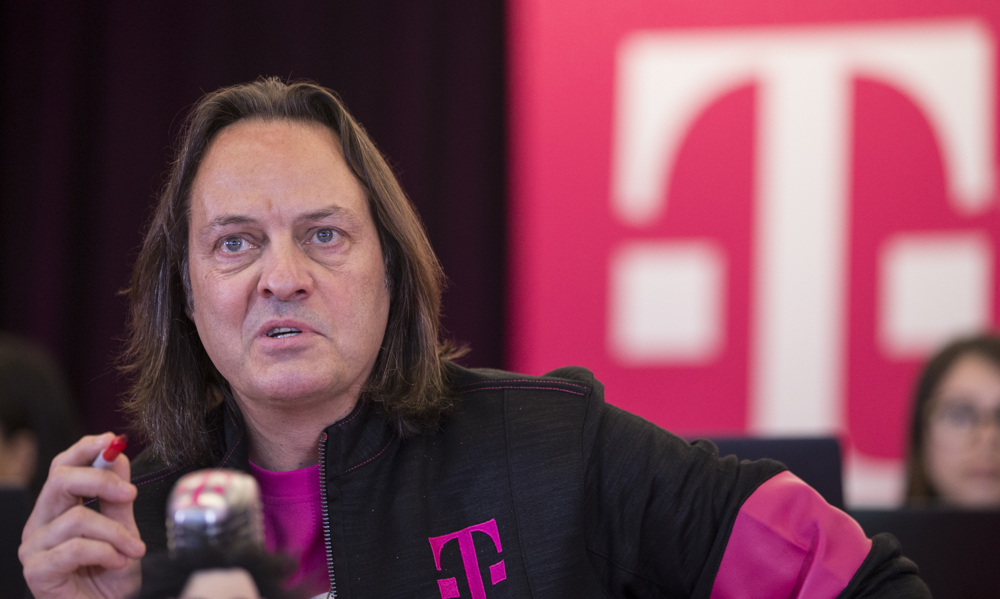T-Mobile's Legere: No Huawei Tech Going in 5G Net, Period

The smarter way to stay on top of broadcasting and cable industry. Sign up below
You are now subscribed
Your newsletter sign-up was successful
T-Mobile CEO John Legere told the House Judiciary Committee that his network does not now include technology from Chinese Telecom Huawei, that a new T-Mobile-Sprint 5G network would not contain such tech—something that concerns many on Capitol Hill—and that he would even help others try to clear their networks of the technology.
That came in a sometimes contentious oversight hearing on the proposed merger.
Carri Bennet, general counsel of the Rural Wireless Association, conceded that about a quarter of her members have Huawei tech in their networks primarily because they bought the equipment in 2010 and 2011—before the potential security threat of the company became clear—and because they were using government broadband subsidies and were looking for low-cost equipment.
Related: Sens. Seek Report on China's Impact on 5G Standards
She said those members were willing to do whatever the government asked them to do in terms of removing that equipment, but would be looking for government subsidies to do that.
Legere said T-Mobile would be willing to use its purchasing power to help them replace that equipment.
That was just one of many pledges he was making. Others included job gains rather than losses and lower prices rather than high.
The smarter way to stay on top of broadcasting and cable industry. Sign up below
Related: T-Mobile's Legere: We Are the Un-Cable, Too
Witness Gigi Sohn, a distinguished fellow at Georgetown University Law Center and former top counselor to then FCC Chairman Tom Wheeler, said she kept hearing those promises but there was no mechanism to enforce them. She also said that while T-Mobile might lower per-unit pricing, which means less for more speed or bandwidth, it would still be raising actual prices.
Legere received a lot of pushback from Democrats on the panel for having spent almost $200,000 at the Trump D.C. hotel in the days following filing the merger with regulators there, but Legere pointed out that was less than 10% of the company's D.C. hotel spend over that time.
It was the third oversight hearing on the deal in the past couple of months, proof of Democrats promise to exercise muscular oversight of mergers, something the Republicans did not do, pointing out that vetting such mergers was the primary province of the FCC and Department of Justice and Federal Trade Commission and that Hill hearings could be read as an attempt to put a political thumb on that process.
Huawei President Ren Zhengfei has said his company is not a security risk and does not spy or provide technological back doors to its products.
Contributing editor John Eggerton has been an editor and/or writer on media regulation, legislation and policy for over four decades, including covering the FCC, FTC, Congress, the major media trade associations, and the federal courts. In addition to Multichannel News and Broadcasting + Cable, his work has appeared in Radio World, TV Technology, TV Fax, This Week in Consumer Electronics, Variety and the Encyclopedia Britannica.

